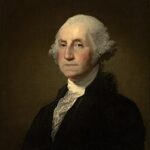George Washington’s complex relationship with slavery represents one of history’s most troubling moral contradictions. The first president privately questioned slavery’s morality while publicly maintaining silence. His Washington slavery stance undermined America’s founding principles of equality and freedom.
The Moral Contradiction
Washington owned over 300 enslaved people at Mount Vernon throughout his presidency. Private letters reveal his growing discomfort with the institution. Yet he never used his unprecedented influence to advocate for abolition. This silence spoke volumes to both supporters and opponents of slavery. ⚠️
Political Calculations Over Principles
Washington prioritized national unity over moral leadership on slavery. He feared that anti-slavery positions would fracture the fragile new nation. Southern states threatened secession if slavery faced federal restrictions. The president chose political pragmatism over ethical principles. His Washington slavery stance reflected calculated inaction rather than principled leadership.
Personal Economic Interests
Mount Vernon’s economic success depended entirely on enslaved labor. Washington’s wealth grew from tobacco and wheat cultivation using unpaid workers. Financial self-interest clearly influenced his public silence on slavery. He freed enslaved people only in his will, after death eliminated personal costs. 💰
Impact:
Washington’s failure to condemn slavery created devastating long-term consequences for American society. His silence legitimized the institution and delayed abolition by decades. The moral authority of the presidency remained unused against humanity’s greatest evil.
Institutional Entrenchment
Presidential silence on slavery emboldened pro-slavery forces throughout the South. Washington’s example encouraged future leaders to avoid confronting the issue directly. His Washington slavery stance became a template for political avoidance. The institution grew stronger and more entrenched during his presidency. Enslaved populations increased dramatically in the following decades. 📈
Constitutional Precedent
Washington’s inaction established dangerous precedents for executive power limitations. Future presidents cited his example to justify their own slavery compromises. The Constitution’s slavery provisions remained unchallenged and unquestioned. Federal authority over slavery appeared permanently restricted by Washington’s restraint. This precedent lasted until the Civil War forced resolution. 🔥
International Reputation Damage
European nations viewed American slavery with growing disgust and skepticism. Washington’s silence undermined America’s credibility as a beacon of freedom. British abolitionists used American hypocrisy to attack republican government itself. The contradiction between liberty rhetoric and slavery practice became internationally embarrassing. 🌍
Delayed Justice
Washington’s moral failure cost hundreds of thousands of lives over subsequent decades. Earlier presidential leadership might have prevented the Civil War entirely. His silence contributed to 70 additional years of legal slavery. The economic and social costs of delayed abolition proved catastrophic.
